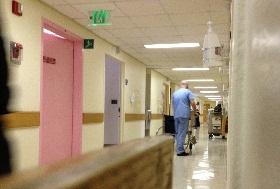Using AI to control energy for indoor agriculture
30 September 2024
Published online 18 March 2013

Despite recent improvements in patient safety in Lebanon, healthcare providers are still reluctant to report mistakes in case their admissions are used against them.
A team from the American University of Beirut (AUB) and the Lebanese American University surveyed 6,807 healthcare providers at more than half the hospitals in Lebanon, between 2010 and 2011. They used a localized version of the Hospital Survey on Patient Safety Culture, which is used to determine how well safety is promoted among health professionals.
"Staff and health providers don't feel at ease reporting errors and mistakes because of the culture of blaming rather than learning," says Fadi Jardali, lead author and associate professor at AUB. "Hospitals have a long way to go to get to the stage where people feel comfortable reporting medical errors"
The survey found that 81.7% of respondents said they believed making mistakes was held against them, while 82.3% worry that errors are kept in their personnel file. Almost two-thirds felt that when reporting mistakes they were reporting the person at fault and not just the problem.
Jardali blamed a general management culture of blaming rather than using mistakes as learning experiences.
It is not as bad as the survey results suggest.
The study also found, however, that 91.4% of healthcare workers believe their organizations were actively trying to improve patient safety. About 80% of respondents thought that promoting safety among staff was a top priority for management at their hospital. Researchers cited the country's accreditation system that highlights certain safety measures as a major driver for the improvement of patient welfare.
"The results of our studies are showing that while [accreditation] is important, it is not yet sufficient to promote patient safety practices," Jardali says. "It's a call to action that management, healthcare providers and policymakers should take further steps to improve patient safety practices in organizations."
The Syndicate of Private Hospitals in Lebanon provided support for the study, but its president, Sleiman Haroun, was skeptical about the results. He says that in conferences of the syndicate sponsors, errors are often openly discussed, despite the survey's findings.
"We made a quantum leap on this issue since we started talking about it five or six years ago," says Haroun. While the syndicate's "no shame, no blame" policy may not be 100% applied, it is not as bad as the survey results suggest, he adds.
The syndicate has also been working with health providers to improve the safety culture of hospitals. Haroun believes the next step is to have more comprehensive statistics on the occurrence of mistakes, and to improve regulations and the legal system to address more serious failings, such as malpractices.
doi:10.1038/nmiddleeast.2013.37
Stay connected: